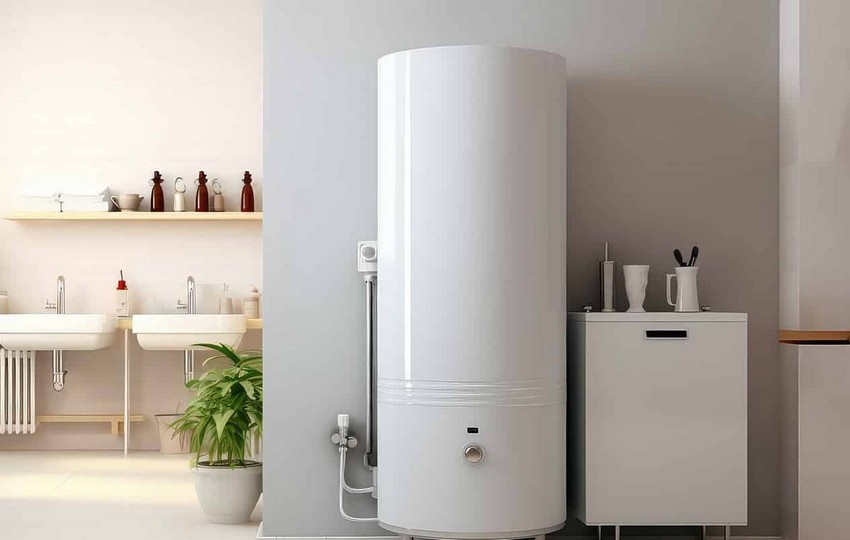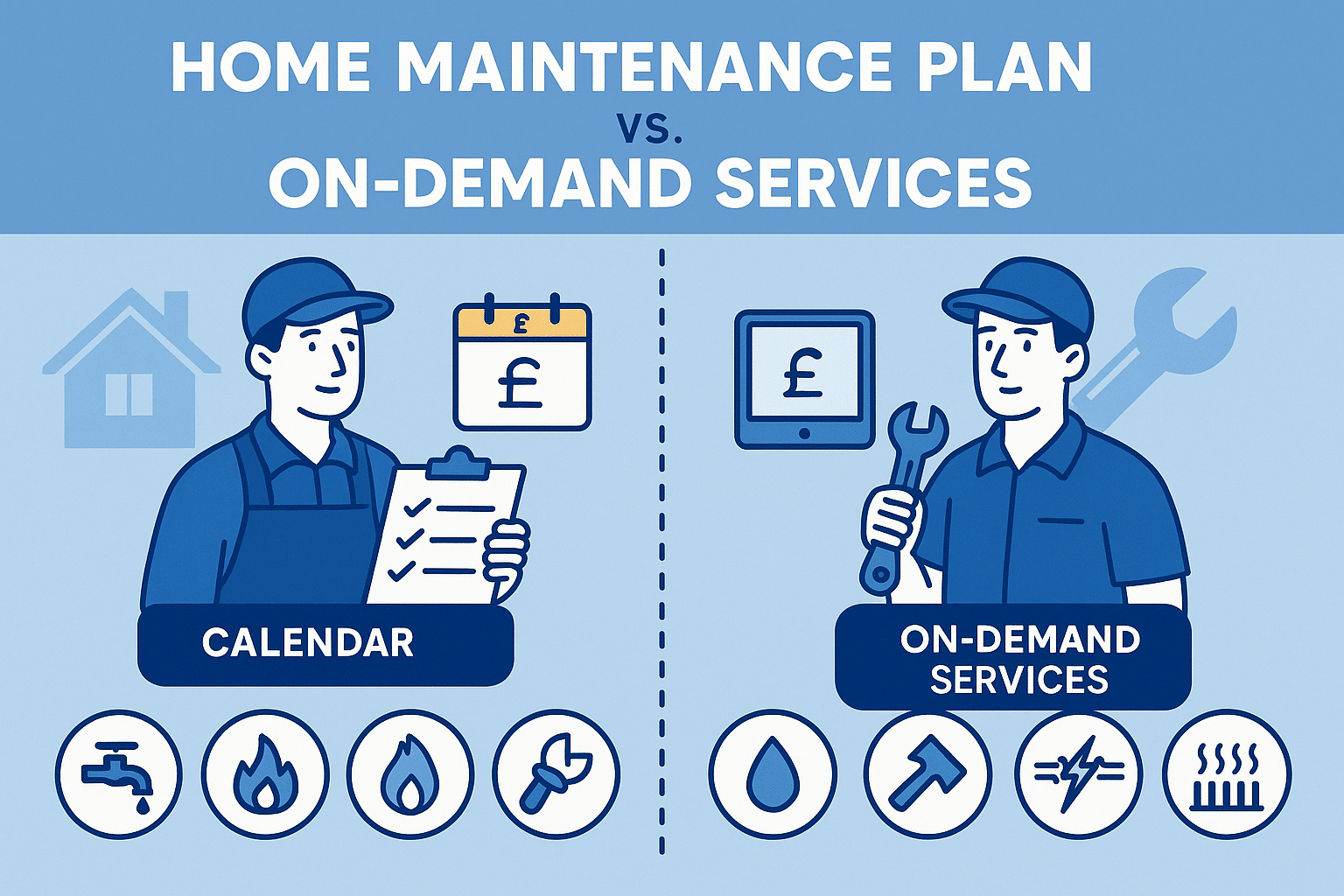 Boiler Servicing and CP12’s: A Clear Guide for Homeowners
Boiler Servicing and CP12’s: A Clear Guide for Homeowners

A comprehensive Landlord Gas Safety Certificate Guide is essential for every UK landlord. As a landlord, your top priority is the safety and well-being of your tenants, and gas safety is a crucial aspect of that. This guide will walk you through everything you need to know about gas safety certificates, from understanding your legal obligations to finding a qualified engineer.
Let’s delve into the intricacies of gas safety and ensure you’re providing a safe and comfortable living environment for your tenants. Remember, being a responsible landlord requires proactive measures, especially regarding something as critical as gas safety.
Table of Contents:
- Your Legal Obligations as a Landlord
- Understanding the Gas Safety Certificate
- What Happens During a Gas Safety Inspection?
- What if Your Property Fails the Inspection?
- Frequently Asked Questions about a Landlord Gas Safety Certificate Guide
- Conclusion
- Conclusion
Your Legal Obligations as a Landlord
In the UK, landlords are legally required to adhere to strict gas safety regulations outlined in the Gas Safety (Installation and Use) Regulations 1998. These regulations mandate that all gas appliances, fittings, chimneys, and flues provided for your tenant’s use are safe and function efficiently. Neglecting these obligations could lead to severe penalties, including substantial fines or even imprisonment.
Annual Gas Safety Checks
One of the core requirements of the gas safety regulations is conducting an annual gas safety check on all gas appliances and flues every 12 months. These checks must be performed by a Gas Safe registered engineer. This means they are qualified and authorised to work with gas appliances and can issue a valid Landlord Gas Safety Record.
The safety inspection is designed to make sure all appliances are working properly, with no gas leaks, and efficient ventilation. After a satisfactory check, the engineer will issue a Landlord Gas Safety Certificate, also known as a CP12, certifying the safety of the gas appliances within the property.
Maintenance and Repairs
Beyond annual gas safety checks, the Gas Safety Regulations 1998 place responsibility on landlords for the proper maintenance of gas equipment in their rental properties. You are also responsible for ensuring any necessary repairs to gas appliances, flues, pipework, and chimneys are promptly handled.
This responsibility is an ongoing duty, requiring consistent attention and response throughout the tenancy. When addressing these maintenance needs, it’s a legal requirement to use a Gas Safe registered engineer. These qualified professionals possess the expertise and certification to guarantee all work complies with safety regulations.
Their involvement protects both your tenants’ safety and ensures you, as the landlord, are fulfilling your legal responsibilities. Failing to address maintenance and repairs could lead to gas leaks, carbon monoxide poisoning, fires, or explosions, all of which can have severe consequences.
Record Keeping
Proper record-keeping is a crucial part of being a responsible landlord. It proves that you have fulfilled your legal obligations related to gas safety. A key element of this is providing your tenants with a copy of the Gas Safety Certificate within 28 days of a completed check. Additionally, any new tenants should receive a copy of this certificate before they move into the property.
It’s recommended to maintain a file where you keep a copy of all gas safety records for at least two years. This documentation demonstrates a history of your adherence to gas safety standards. This practice safeguards you as a landlord, providing evidence of your commitment to maintaining a safe environment in your rental properties.
Understanding the Gas Safety Certificate
Often referred to as a CP12 or Landlord Gas Safety Record (LGSR), the Gas Safety Certificate is an official document issued by a Gas Safe registered engineer. Its purpose is to document the findings of the annual gas safety check. The certificate includes vital information regarding the safety inspection, and it should look something like the example provided below.
Below, I have highlighted the key elements included on the Gas Safety Certificate to aid in your understanding of this important document.
| Element | Explanation |
|---|---|
| Landlord Information | The certificate will identify you as the landlord, including your name and address. It establishes clear responsibility for gas safety. |
| Property Address | The specific property where the safety inspection was conducted. |
| Engineer Details | Details of the Gas Safe registered engineer who conducted the inspection. This includes their name, Gas Safe Register registration number, and signature, ensuring accountability for the assessment’s accuracy and legality. |
| Appliance Information | The location, type, and condition of each gas appliance checked. This offers a comprehensive record of all gas appliances within the property and their evaluated safety status. |
| Safety Check Results | Detailed findings of operational checks performed on each gas appliance. |
| Defects and Remedial Action | Any safety defects found during the inspection and details of steps taken to rectify them, emphasizing transparency. |
| Inspection Date | Date of the Gas Safety check. Serves as proof of timely compliance with annual gas safety check obligations. |
What Happens During a Gas Safety Inspection?
When a Gas Safe registered engineer arrives at your rental property for a gas safety check, their role is to conduct a thorough examination of every gas appliance and installation. Their aim is to verify each aspect adheres to the highest safety standards.
Appliance Inspection
The engineer begins by carefully inspecting all gas appliances. They will check to make sure gas burners are functioning optimally, producing a clean and safe flame, and confirm that each appliance is securely installed, ruling out potential risks of accidental dislodgement or improper connections.
They’ll assess ventilation to ensure no build-up of harmful gases. And, equally important, they verify if the appliances are suitable for the rooms where they are installed, preventing dangers posed by using appliances in inappropriate spaces. The engineer will also test the appliance’s gas pressure and flow rate to ensure they are within the safe operating limits.
Flue, Chimney, and Air Vent Inspection
A key part of the gas safety check involves an assessment of the flue system, including chimneys and air vents. The engineer carefully checks to ensure there’s a continuous and unobstructed flow for fumes and exhaust gases, preventing any potential accumulation.
They scrutinise pipework for tightness, aiming to rule out any gas leaks. Additionally, they ensure an adequate permanent air supply to fuel the appliances correctly.
This assessment aims to reduce risks of carbon monoxide build-up, prioritising a healthy indoor environment for tenants. The engineer will also check the condition of the flue and chimney for any signs of damage or deterioration.
Safety Device Inspection
In addition to the inspection of appliances and ventilation systems, gas engineers will ensure all safety devices associated with your gas system are functional. This might include checking carbon monoxide detectors, testing shut-off valves, and ensuring safety controls are operational. The goal is to provide layers of protection against potential hazards.
The engineer will test the carbon monoxide detector to ensure it is working correctly and that it is positioned in the correct location. They will also check the gas meter for any signs of tampering or leaks.
What if Your Property Fails the Inspection?
While we aim for everything to be in top-notch condition, it’s important to acknowledge the possibility that your property might not pass the gas safety check. But rest assured, there’s no need to panic. It’s actually quite common for minor issues to surface. In most cases, these issues can be quickly resolved.
The engineer, in this instance, will classify any discovered faults and advise on appropriate remedial action. Should an appliance or installation be deemed ‘At Risk’, immediate steps to remedy the situation will need to be taken. Don’t worry though, if there are immediate dangers the engineer will either repair it immediately, cap the gas, or apply a “Do Not Use” sticker.
Just be sure to address these repairs as soon as possible to reinstate the safety of your property and comply with regulations. It’s important to note that you are legally obligated to act upon any faults or recommendations highlighted within the report by the Gas Safe engineer.
Frequently Asked Questions about a Landlord Gas Safety Certificate Guide
What gas certificate do I need as a landlord?
In the UK, as a landlord, you are legally required to have a Landlord Gas Safety Record (LGSR). This certificate, also known as a CP12, confirms that the gas appliances and flues in your rental property have been checked and deemed safe to use. The check must be carried out annually by a Gas Safe registered engineer.
What if the landlord forgot to renew the gas safety certificate?
Failing to renew a Gas Safety Certificate is a serious offense under the Gas Safety Regulations. You can find guidance in Scotland on the Scottish Government website and in Wales on the Welsh Government website.
While you should always aim for timely renewals, should this happen, the first step is to schedule a Gas Safety check with a Gas Safe engineer immediately. Take proactive steps to prevent lapses in coverage and safeguard your tenants’ well-being and to avoid penalties.
What makes a gas safety certificate invalid?
Several things can make your gas safety certificate invalid. These include if the certificate has expired or if the Gas Safe registered engineer was not qualified to inspect the specific types of appliances in your property.
If any of the listed gas appliances have been tampered with or altered without authorisation, or, there’s evidence of faulty or unsafe operation of appliances. Any modifications to gas pipework or installations done without approval will invalidate the certificate.
Any discovery of a gas leak would necessitate a new inspection and certificate, and in some instances a major gas event such as a fire or explosion at the property will likely trigger a review and update of the safety certification.
How much can a landlord be fined for no gas safety certificate?
In the UK, if a landlord is found guilty of renting a property without a valid gas safety certificate they could face a significant fine, which can range up to £6,000. There’s even the risk of imprisonment. Be proactive in scheduling those gas safety checks to prevent a situation that would endanger your tenants or land you in legal hot water.
Conclusion
In wrapping up this Landlord Gas Safety Certificate Guide, remember that prioritising the well-being and safety of your tenants is fundamental. The key takeaway is simple: gas safety is paramount, and it starts with understanding and diligently adhering to legal obligations.
Regularly consult resources like Gas Safe Register and the Health and Safety Executive (HSE) for updates and further insights.
Conclusion
Ensuring the well-being of your tenants is essential for any landlord, and a core aspect of that responsibility lies in adhering to the UK’s gas safety standards. This Landlord Gas Safety Certificate Guide serves as a valuable tool, equipping you with the knowledge and insights to prioritise safety and comply with legal obligations. Remember, a safe property makes for happy tenants.


